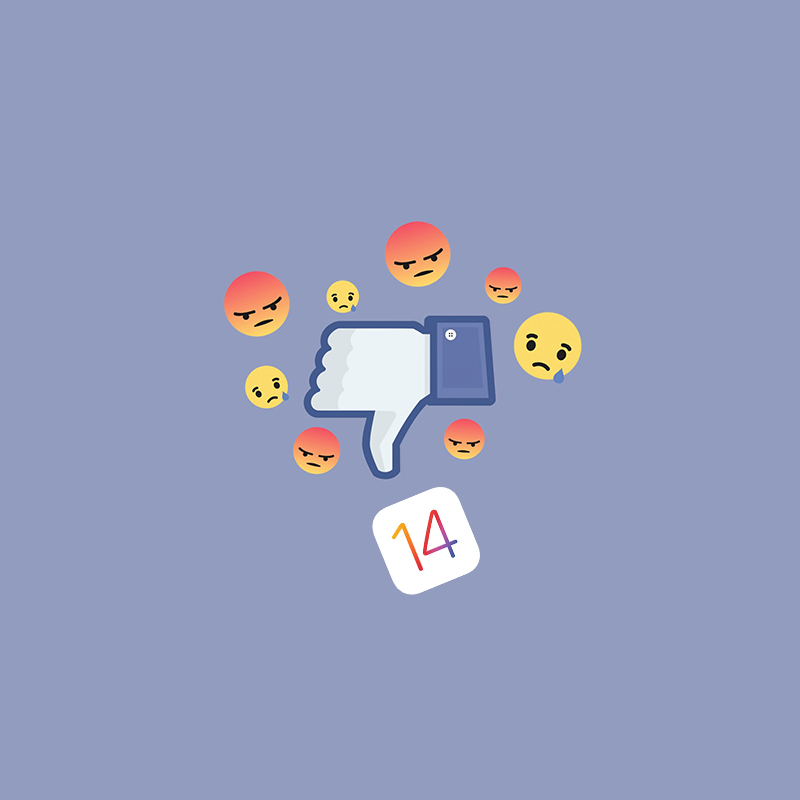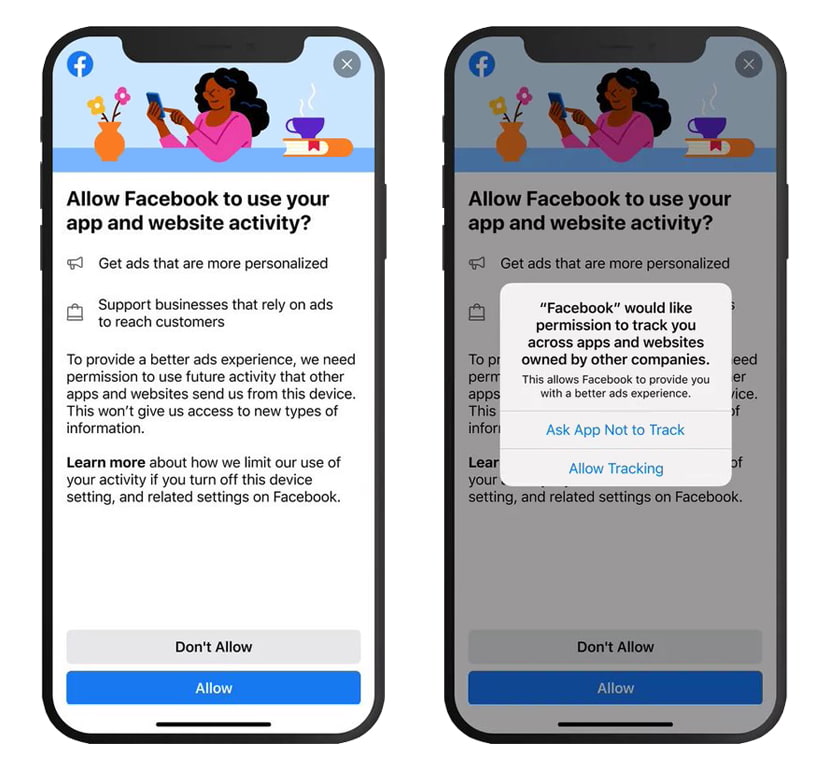
Apple does not consider Facebook as a direct competitor. This is because the two companies' are diametrically opposing each other.
Apple is a lifestyle brand, and that it is the creator of the iPhones, iPads, Macs and other expensive products. And part of the lifestyle Apple sells, is providing users the platform and the device where they can have more control over their privacy.
Facebook on the other hand, is in the data business. From the core Facebook app, to Messenger, WhatsApp and Instagram, they are all free to use. But in return, the company collects data about its users. The more data Facebook collects on users, they more effective its targeted ads will become.
But since an iOS 14 update aims to stop Facebook on its track, by forcing Facebook to earn users consent before tracking them, Facebook turned furious.
The Apple's App Tracking Transparency feature update is meant to require all iOS apps to ask users to opt-in to tracking before allowing them to be tracked by the apps across different websites.
Without the permission, apps will have their tracking abilities severely restricted. This will limit the reach of targeted ads, and so forth.
In Facebook's case, if a user declines to grant it permission, the social giant can no longer target ads to the user based on his/her searches across other websites and third-party apps.
Apple's App Tracking Transparency feature update was initially scheduled to go into effect with the release of iOS 14.
However, Apple delayed the update into 2021, in order to give developers more time to make their software compliant. One of the changes require developers to explicitly ask iPhone and iPad users for permission to obtain the unique IDFA (Identifier for Advertisers).
IDFA is a unique identifier for mobile devices and is used to target and measure the effectiveness of advertising on a user level across mobile devices.
With the permission, Facebook can use users' IDFA code with Facebook’s Audience Network, which is Facebooks method to extends its people-based advertising beyond its owned platforms.
To counter Apple's strategy, Facebook starts showing iOS users the notification when they launch the Facebook app on their iPhones or iPads.
The message asks users to allow the company to track their activity across websites and apps.
While Apple’s notification simply asks users to choose “allow tracking” or “ask app not to track,” Facebook cleverly shows its notification before Apple’s own notification, thereby allowing the social media company to set the tone of the conversation.
By opting into website and app tracking, Facebooks says it can provide you with a “better ads experience,” one where you’ll see more personalized advertisements. It also claims you’ll be helping businesses that rely on advertising to reach their customers.
This is further building on the company's push to cast Apple’s privacy feature update as anti-small business.
At this time at least, Facebook is left with no choice but to follow Apple's rules, or risk being kicked out of the App Store.

Facebook first shared its disagreement back in December 2020.
At that time, the social giant also launched ad campaign to brand Apple's move as bad for small businesses that rely on targeted ads.
In an updated blog post, Facebook said that its notifications will help users make a “more informed decision" than the messages Apple plans on launching in coming months.
“Apple’s new prompt suggests there is a tradeoff between personalized advertising and privacy; when in fact, we can and do provide both. The Apple prompt also provides no context about the benefits of personalized ads,” Facebook said in the post.
Hearing the angry Facebook CEO Mark Zuckerberg, Apple CEO Tim Cook dismissed Facebook’s criticism.
“If a business is built on misleading users, on data exploitation, on choices that are no choices at all, then it does not deserve our praise. It deserves reform,” the CEO said in a data protection conference, without naming Facebook.